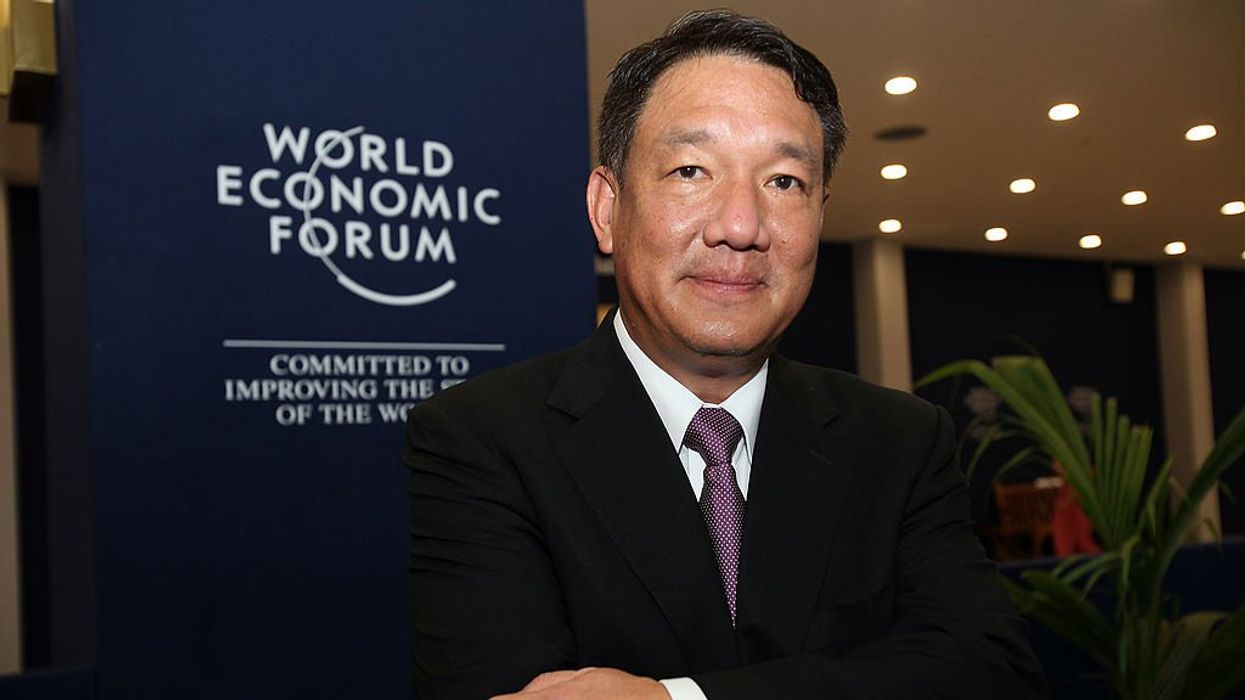
Bloomberg/Getty Images

Legal expert and longtime American expat Benjamin Hart tells Align why the WEF poses a threat to Thai culture.
There's an unlikely new front in the war between globalist elites and ordinary citizens: the tranquil shores of Thailand.
Every year, tens of thousands of Westerners flock to this tropical escape, seeking a break from their own chaotic realities. Sure, some come for the wild nights and debauchery, but many more are here for the stunning beaches, the fantastic food, the rich traditions, and the warmth of the Thai people.
According to Hart, the globalists view Thailand as a 'throwback' in need of reform. 'Thailand was never colonized, and therefore, her national psyche is stronger than that of many other countries,' he points out.
For these travelers, Thailand represents a peaceful refuge from the madness back home. But as American legal expert Benjamin Hart points out, not even paradise is safe from the insidious reach of the one-world advocates.
Hart first came to Thailand in 2007. After teaching in Korea during the height of some notable wars, he was looking for something different. A chance encounter led him to Thailand, where he found himself working on immigration cases, often involving Thai women and U.S. military personnel.
“I came here while the Iraq and Afghanistan conflicts were in full swing,” he recalls. What started as an impromptu escape quickly turned into something much deeper — a real love for his new home. After doing this for well over a decade, he naturalized as a Thai citizen, married the woman of his dreams, and thought he had finally found his place in the world.
But paradise appears to be fading and fast.
“My love of Thailand is why I find the influence of the WEF so troubling,” Hart tells Align.
For the uninitiated, the World Economic Forum wants us to live in a world where we will own nothing and be very happy about owning nothing.
In Thailand, Hart warns that “the WEF possesses a kind of inverted soft power that is as subdued as it is destructive to what most would call ‘traditional’ society.” What was once a haven of personal freedom is now under threat from policies that risk erasing the heart of Thai culture, stripping a proud nation of its unique features.
Hart’s alarm bells started ringing after the formation of a new coalition government brought concerning changes. “The attempt to bring in the so-called ‘Digital Wallet’ handout is deeply concerning,” he says. In a country where cash is still king, this shift toward digital currency reeks of greater surveillance and control.
Of all the organizations in the world, no one has pushed harder for the transition to digital cash than the WEF. “I remember thinking how cool it was in 2009 that you could easily transfer cash just by dropping it into an ATM,” Hart reminisces. “No need for ID, just send the funds.” Now, that freedom seems to be slipping away as the government pushes forward with policies that echo the Davos-driven agenda. Digital cash and digital IDs, it's important to note, go hand in hand.
Then came the misguided proposal to deploy Chinese police officers on Thai streets to ease the nerves of Chinese tourists. “I found the idea as preposterous as it was appalling,” Hart says.
Fortunately, public backlash was strong enough to put an end to that plan, but it served as a wake-up call for Hart. “From that point on, I began to question whether everyone involved truly had the interests of the Thai people at heart,” he admits — a sentiment shared by anyone who values genuine independence. Shortly after the police controversy, Srettha Thavisin, the recently ousted prime minister, attended a WEF summit. That was when the alarm bells really started ringing for Hart.
And rightly so.
Thailand holds a critical place in the world, geographically and strategically. As Hart puts it, the country is the “hyphen” in the Indo-Pacific region. Its location makes it a gateway for trade and cultural exchange, a key player for both regional and global dynamics. Its proximity to vital shipping routes like the Strait of Malacca adds to its strategic importance — nearly a third of global trade passes through these waters.
This centrality also means Thailand can influence the power dynamics between the United States, China, and India. It’s a vital hub for multinational corporations looking for access to Asian and Western markets.
With global powers constantly vying for influence, Thailand stands at the crossroads, making its stability essential for regional security.
Despite the WEF’s looming presence, Hart remains cautiously optimistic that Thailand can resist these pressures. “If Thailand can shake off the WEF nonsense, I believe the future is very bright,” he says.
That's a big if, though.
According to Hart, the globalists view Thailand as a "throwback" in need of reform. “Thailand was never colonized, and therefore, her national psyche is stronger than that of many other countries,” he points out.
The Thai people's independent streak doesn’t sit well with those in power. “We’re not interested in some supranational body of so-called experts and oligarchs telling us what to do,” Hart insists — a sentiment shared by many who feel threatened by the WEF's plans, not just in Thailand but worldwide.
"On a personal level," Hart adds, "I find the WEF repugnant because the sole ideology of the organization appears to be totalitarianism. There is no 'greater good' being promoted; it's simply totalitarianism and authoritarianism for their own sake."
The very liberties Hart came to Thailand for are now under siege. The reality is that the WEF is attempting to engineer Thai society, slowly but surely. This battle against the creeping globalist influence isn’t just about Thailand’s future — it’s about the future of national identity everywhere.
John Mac Ghlionn
Contributor